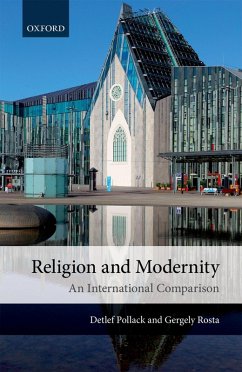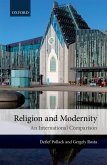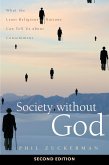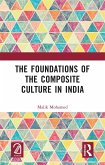This is not a book that provides a new integrated theory of religious change in modern societies, but rather one that develops theoretical elements that contribute to the understanding of some contemporary religious developments. Most of the approaches in sociology of religion are prone to emphasise either processes of religious decline or of religious upswing. For example, secularization theory usually includes a couple of relevant factors--such as functional differentiation, economic affluence or social equality--in order to account for religious change. However, the result of such a theory's empirical analyses seems to be certain in advance, namely that the social relevance of religion is decreasing. In contrast, the religious market model devised by sociologists of religion in the US is inclined to detect everywhere processes of religious upsurge. Religion and Modernity: An International Comparison avoids a purely theoretically based perspective on religious changes. For this reason, Detlef Pollack and Gergely Rosta do not begin with theoretical propositions but with questions. The authors raise the question of how the social significance of religion in its various facets has changed in modern societies, and explain what factors and conditions have contributed to these changes.
Dieser Download kann aus rechtlichen Gründen nur mit Rechnungsadresse in A, B, BG, CY, CZ, D, DK, EW, E, FIN, F, GR, HR, H, IRL, I, LT, L, LR, M, NL, PL, P, R, S, SLO, SK ausgeliefert werden.









